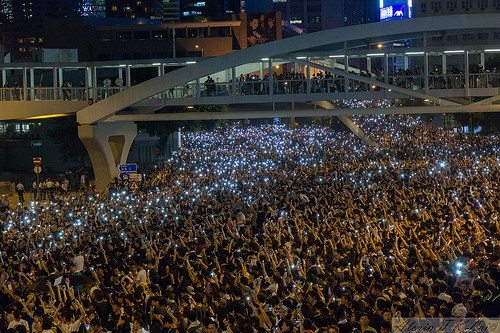
September 29, 2014; NPR, “All Tech Considered”
Preparing for the possibility that their digital communications might get interrupted, pro-democracy protesters in Hong Kong have taken the precaution of downloading a free app called FireChat, which allows users to form their own communications networks or temporary Internet. The system does not need cell towers or Wi-Fi nodes to function.
FireChat, a mesh networking app, was launched in March by Open Garden and has already proven useful and popular during disasters or political upheaval. It was used by protestors in Taiwan last spring and is being downloaded by the thousands in Iraq. In Hong Kong, student leaders are recommending FireChat as a precaution; around 100,000 users downloaded it between Sunday morning and Monday morning.
Sign up for our free newsletters
Subscribe to NPQ's newsletters to have our top stories delivered directly to your inbox.
By signing up, you agree to our privacy policy and terms of use, and to receive messages from NPQ and our partners.
“Once you build a mesh network…now you have a network that is resilient, self-healing, cannot be controlled by any central organization, cannot be shut down and is always working,” according to Christophe Daligault of Open Garden. “I think that solves many other drawbacks or challenges of the mobile broadband Internet today.”
Gizmodo explains the attraction:
“Mesh networks are an especially resilient tool because there’s no easy way for a government to shut them down. They can’t just block cell reception or a site address. Mesh networks are like Voldemort after he split his soul into horcruxes (only not evil). Destroying one part won’t kill it unless you destroy each point of access; someone would have to turn off Bluetooth on every phone using FireChat to completely break the connection. This hard-to-break connection isn’t super important for casual chats, but during tense political showdowns, it could be a lifeline.”
Daligault says all that is needed in terms of equipment is a smart phone. “Each [phone] becomes a router and in a sense you’re growing the Internet—everyone who joins the mesh network creates an extension of the Internet,” Daligault says. “In a year or two from now, I think people won’t even remember that you had to be on Wi-Fi or get a cell signal to be able to communicate.”—Ruth McCambridge













